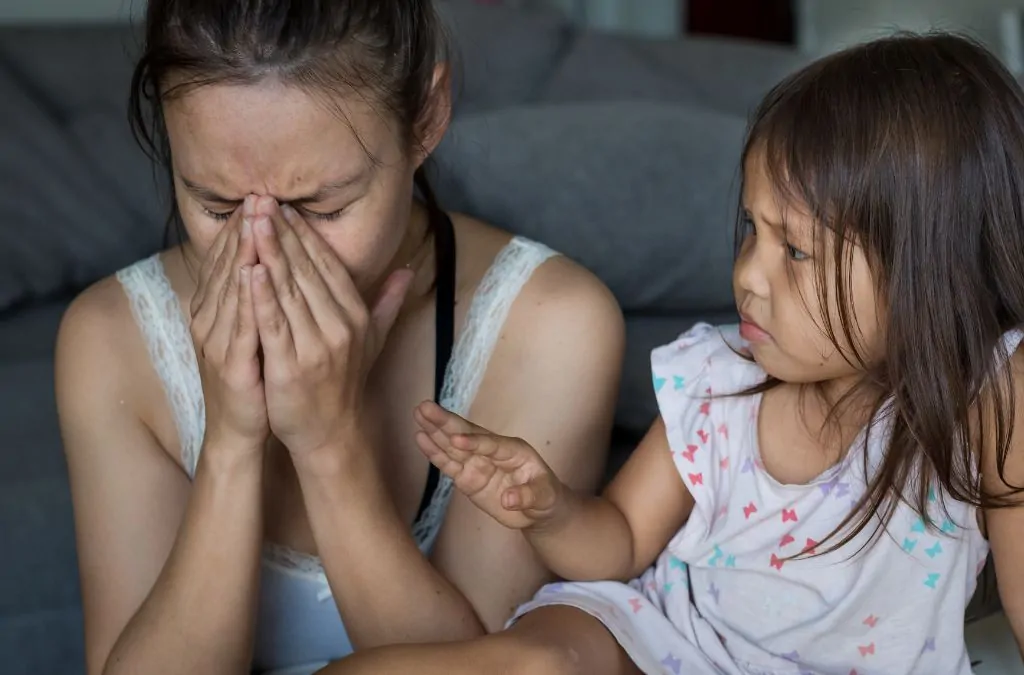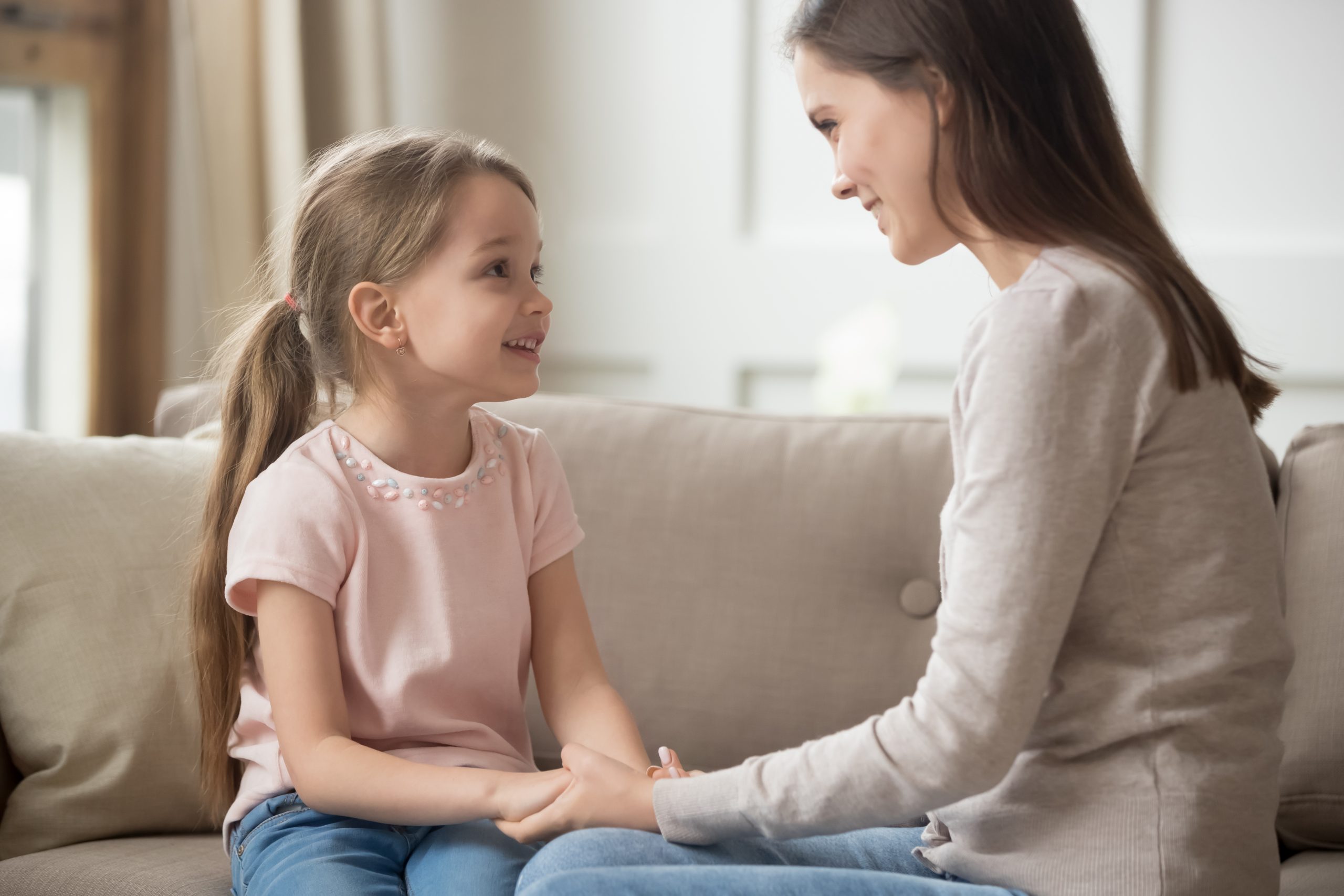Why Do Parents With Anxiety Need Psychological Support?
You need psychological support as a parent with anxiety to nurture a healthy environment for your children’s growth. Your anxiety can impact your children’s emotional and cognitive development, leading to behaviors like clinginess and irritability. Therapy offers coping strategies, self-awareness, and tools to handle parenting challenges effectively. It breaks the cycle of anxiety, preventing your children from inheriting similar struggles. Prioritize your mental well-being with therapy, self-care, and seeking professional help to provide the best support for your family. Improve your overall well-being and create a fulfilling life for you and your children.
Key Takeaways
- Psychological support aids in managing parental anxiety effectively.
- Therapy enhances self-awareness and coping strategies for anxious parents.
- Addressing underlying issues contributes to long-term anxiety relief.
- Therapy fosters a nurturing environment for children by improving parental well-being.
- Developing coping mechanisms through therapy promotes resilience against anxiety.
Impact of Parental Anxiety on Children

Parents’ anxiety can greatly affect their children’s emotional well-being and development. As a parent, it’s important to recognize the significant impact your anxiety can have on your child’s overall growth.
Child development is a complex process that can be influenced by various factors, with parental influence playing an essential role. Children look to their parents for guidance, support, and emotional stability.
When parents experience high levels of anxiety, it can create an environment of stress and tension in the household, impacting the child’s emotional state. This can manifest in behaviors such as increased clinginess, irritability, or even the development of anxiety disorders in children.
Moreover, parental anxiety can hinder a child’s social and cognitive development. Children may struggle with forming healthy relationships, regulating their emotions, or achieving academic milestones when exposed to prolonged periods of parental anxiety.
Coping Strategies for Anxious Parents
To manage anxiety effectively as a parent, implementing coping strategies is essential for maintaining a healthy and supportive environment for your child. Stress management plays an important role in handling the challenges of parenting while dealing with anxiety. One helpful coping strategy is practicing mindfulness techniques, such as deep breathing or meditation, to center yourself in moments of stress.
Additionally, setting realistic expectations for yourself and seeking support from loved ones can alleviate some of the pressures you may feel as a parent with anxiety.
Parenting tips for anxious parents include establishing routines to create a sense of predictability for both you and your child. Prioritizing self-care activities, like exercise and hobbies, can also help reduce anxiety levels.
It’s important to communicate openly with your child about your feelings in an age-appropriate manner, fostering a supportive and understanding environment. Remember, seeking professional help through therapy or counseling is a valuable resource that can provide additional coping strategies and support tailored to your specific needs.
Benefits of Therapy for Parents

Exploring the benefits of therapy can offer valuable support and guidance for parents managing the challenges of anxiety and parenting simultaneously.
Therapy benefits parents by providing a safe space to explore their feelings, fears, and struggles in a non-judgmental environment. Through therapy, parents can gain coping strategies, stress management techniques, and tools to navigate the complexities of raising children while dealing with anxiety.
Therapy also plays an essential role in improving parental well-being by enhancing self-awareness and self-care practices. Parents often neglect their own mental health while focusing on their children, but therapy encourages them to prioritize their emotional needs and develop a healthier mindset.
By addressing underlying issues contributing to anxiety, therapy can help parents break free from negative thought patterns and build resilience to cope with daily stressors more effectively.
Ultimately, therapy equips parents with the necessary skills to enhance their overall well-being, strengthen family relationships, and create a more stable and nurturing environment for both themselves and their children.
Breaking the Cycle of Anxiety
It’s important to recognize that anxiety can affect children when parents are struggling with their own anxiety.
By implementing coping strategies, you can break the cycle of anxiety within your family.
Taking proactive steps to manage your anxiety can create a more stable and supportive environment for your children.
Anxiety in Children
Helping children break the cycle of anxiety starts with recognizing and addressing their fears and worries in a supportive and understanding manner. Childhood anxiety can manifest in various forms, such as separation anxiety, social anxiety, or generalized anxiety disorder.
As a parent with anxiety, it’s important to intervene early to prevent your child from developing similar struggles. Your own experiences with anxiety can provide you with a unique insight into your child’s feelings and behaviors. By seeking professional help and learning coping strategies, you can effectively support your child in managing their anxiety.
It’s essential to create a safe space for your child to express their emotions without judgment. Encourage open communication and actively listen to their concerns. Help them understand that it’s okay to feel anxious at times, but also empower them with tools to cope with their worries.
Coping Strategies
To effectively break the cycle of anxiety, it’s important to equip yourself and your child with practical coping strategies that promote emotional well-being and resilience. Mindfulness techniques can be powerful tools in managing anxiety. Encourage your child to practice mindfulness through activities like deep breathing, meditation, or guided imagery to help them stay grounded in the present moment and reduce anxious thoughts.
Additionally, incorporating stress management techniques into your daily routine can make a significant difference. Teach your child healthy ways to cope with stress, such as engaging in physical activity, journaling, or spending time in nature.
Creating a supportive environment that encourages open communication and validation of feelings is vital in helping both you and your child navigate anxiety. Remember, breaking the cycle of anxiety is a journey that requires patience and persistence.
Supporting Parental Mental Health

Supporting parental mental health is vital for creating a nurturing and stable environment for both you and your children. Parental stress can greatly impact your mental health, affecting your ability to cope with daily challenges and parent effectively. It’s essential to prioritize your mental well-being to guarantee you can provide the support and care your children need.
When facing parental stress, it’s important to acknowledge the impact it has on your mental health. Seeking professional help, such as therapy or counseling, can offer strategies to manage stress and improve your overall well-being. Additionally, practicing self-care activities like exercise, mindfulness, and setting boundaries can help alleviate mental health struggles.
Importance of Self-Care for Parents
Prioritizing self-care as a parent is essential for maintaining your mental well-being and effectively managing the challenges of raising children. Stress management plays an important role in your overall health and ability to cope with daily demands. Engaging in self-care practices can greatly reduce stress levels, allowing you to approach parenting with a clearer mind and a more positive outlook.
Incorporating self-care into your routine doesn’t have to be complicated. Simple activities like taking short breaks during the day to relax, practicing mindfulness or meditation, exercising regularly, or enjoying a hobby can help you unwind and recharge.
These self-care practices aren’t selfish but rather necessary for you to be the best parent you can be.
Professional Help for Anxious Parents

Seeking professional help is a valuable step for anxious parents to effectively manage their mental health and navigate the challenges of parenting. Parental stress can take a toll on your well-being, impacting not only your mental health but also your ability to care for your children. A trained mental health professional can provide you with the tools and strategies needed to cope with anxiety, reduce stress, and improve your overall well-being.
Therapy sessions can offer a safe space for you to express your fears and concerns openly. Through counseling, you can learn to identify triggers that worsen your anxiety and develop healthy coping mechanisms. Additionally, a therapist can help you explore underlying issues contributing to your anxiety and work towards resolving them.
Frequently Asked Questions
Can Parental Anxiety Be Genetic and Passed on to Children?
Parental anxiety can have a genetic predisposition, potentially passed on to children. However, through therapy and learning coping mechanisms, you can manage and break this cycle, creating a healthier environment for yourself and your family.
How Can Anxious Parents Navigate Discussing Their Struggles With Their Kids?
When talking about your struggles with your kids, focus on open communication. Use age-appropriate language and reassure them. Share coping strategies and seek professional guidance if needed. Remember, honest discussions can strengthen your bond.
Is Therapy the Only Solution for Parents With Anxiety?
Exploring various options is crucial for parents with anxiety. Alternative coping strategies, support groups, mindfulness techniques, and stress management can also provide relief. It’s important to discover what works best for you.
What Are Some Practical Self-Care Tips for Anxious Parents?
To manage anxiety as a parent, try incorporating mindfulness practices for grounding, relaxation techniques for stress relief, regular exercise for releasing tension, and engaging in hobbies for self-care. Prioritize your well-being to better support your family.
How Can Other Family Members Support Parents With Anxiety?
To support parents with anxiety, siblings can offer a listening ear and encourage coping strategies. Extended family members can provide a safe space for communication, showing empathy and understanding. Your support can make a significant difference in their mental well-being.
Conclusion
To sum up, parents with anxiety need psychological support to break the cycle of anxiety and support their children’s mental health. By seeking therapy, practicing coping strategies, and prioritizing self-care, parents can create a healthier environment for their families.
Remember, taking care of your mental health isn’t only important for yourself, but also for the well-being of your children. Seek help, practice self-care, and break free from the grips of anxiety for a happier and healthier family life.

Hey there! 👋 I’m a proud mom and passionate writer, sharing my parenting journey. 📝 Join me as I navigate the ups and downs of motherhood, offering tips, advice, and a sprinkle of humor along the way. 🌟







